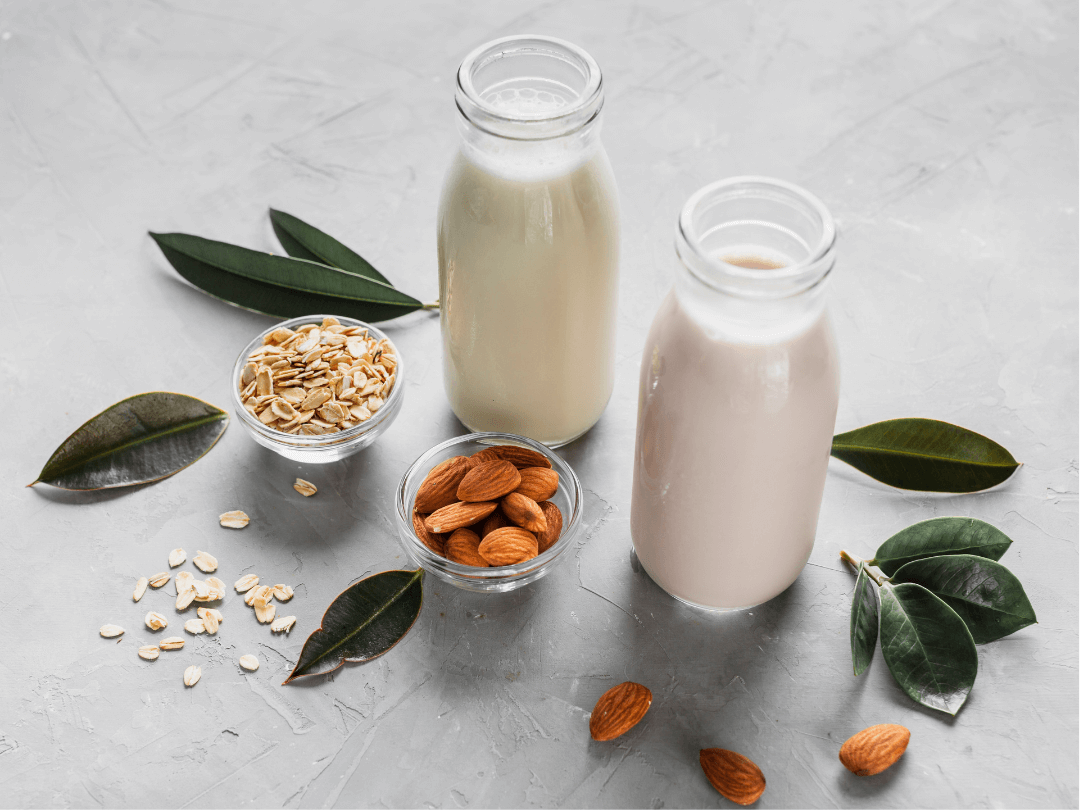We're an affiliate
We hope you love the products we recommend! Just so you know, we may collect a share of sales or other compensation from the links on this page. Thank you if you use our links, we really appreciate it!
The gut microbiome is a complex community of microorganisms that live in the digestive tract. The microbiome plays an essential role in maintaining overall health by aiding in digestion, absorption of nutrients, and regulating the immune system. However, poor dietary choices, including high consumption of dairy products, can negatively impact the gut microbiome and lead to digestive issues. This is where dairy alternatives come in as a potential solution.
Dairy Products and Digestive Health
Dairy products have been a staple in many people’s diets for centuries. However, they can cause digestive discomfort for some people, especially those who are lactose intolerant. Lactose intolerance is a condition in which the body does not produce enough lactase, the enzyme responsible for breaking down lactose, the sugar found in milk and dairy products. This results in bloating, cramps, gas, and diarrhea.
Furthermore, dairy products are often high in saturated fats, which can contribute to inflammation in the gut and lead to a disrupted microbiome. Studies have linked high intake of dairy products with an increased risk of inflammatory bowel disease (IBD) and colon cancer.
The Rise of Dairy Alternatives
Dairy alternatives are becoming increasingly popular among consumers, with options ranging from soy, almond, oat, and coconut milk to vegan cheese, yogurt, and ice cream. These products are typically lactose-free and lower in saturated fats, making them a suitable option for people with lactose intolerance or those looking to reduce their dairy consumption.
The Impact of Dairy Alternatives on the Gut Microbiome
Research has shown that consuming dairy alternatives can have a positive impact on the gut microbiome. For instance, a study conducted in 2019 found that consuming soy milk led to an increase in beneficial bacteria such as bifidobacteria and lactobacilli, which are associated with improved gut health.
Similarly, a study conducted in 2020 found that consuming almond milk led to an increase in beneficial gut bacteria and a decrease in potentially harmful bacteria such as Clostridia.
Choosing the Right Dairy Alternatives
While dairy alternatives can be a great addition to one’s diet, it’s essential to choose the right products. Some dairy alternatives, such as coconut milk, can be high in saturated fats, which can negatively impact gut health. Additionally, some dairy alternatives may contain added sugars or other additives that can also disrupt the microbiome.
When choosing dairy alternatives, look for products that are unsweetened, free of additives, and low in saturated fats. Also, consider opting for products that are fortified with vitamins and minerals such as calcium and vitamin D, which are essential nutrients found in dairy products.
Conclusion
In conclusion, the gut microbiome plays a crucial role in overall health, and poor dietary choices can negatively impact it. Dairy products, in particular, can lead to digestive discomfort and contribute to gut inflammation. Dairy alternatives, on the other hand, can have a positive impact on the gut microbiome by increasing beneficial bacteria and reducing harmful bacteria. When choosing dairy alternatives, opt for products that are unsweetened, free of additives, and low in saturated fats. By making the switch to dairy alternatives, you can improve your digestive health and support a healthy gut microbiome.
Image by Freepik
